hankyoreh
Links to other country sites 다른 나라 사이트 링크
“Pachinko” - a story by and about Korean diaspora - captivates the world
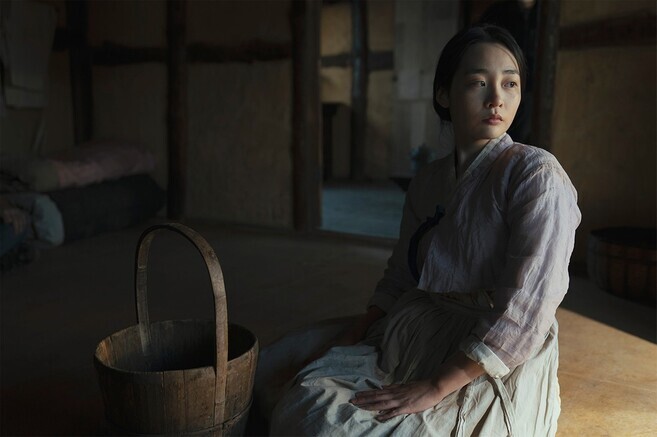
The setting is Yokohama, Japan, in 1923. Jeju-born Koh Hansu (played by Lee Min-ho) is living there with his father (Jung Woong-in).
Impressed by his intelligence and diligence, the American family for whom Hansu has been tutoring suggests that he accompany them to the US.
But because Hansu’s father is in debt to the Yakuza, Hansu is supposed to work for the Yakuza to pay off the debt. Unwilling to jeopardize his son’s chance to study in America, Hansu’s father begs the Yakuza boss for mercy. It’s at that very moment that a massive earthquake occurs.
After several close calls, Hansu manages to escape immediate danger with the Yakuza boss. During that time, terrified Japanese are butchering Koreans, whipped up by rumors that Koreans were poisoning the wells and killing Japanese.
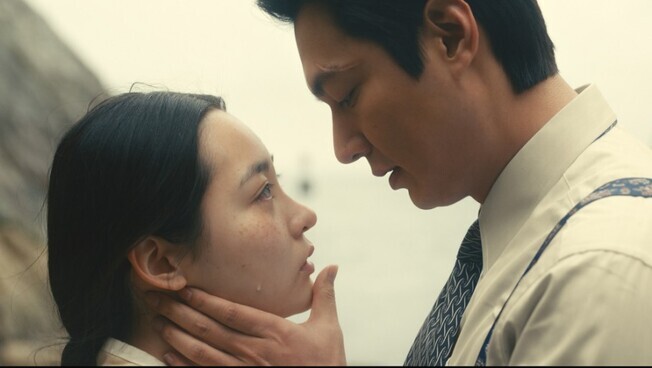
Hansu’s past — as well as the horror of the Great Kanto Earthquake and the subsequent massacre of Koreans — were the subject of the seventh episode of Pachinko, which dropped on April 22. Pachinko is an original series produced by the Apple TV+ streaming service.
Through this episode, we learn that the pain and sorrow of Korean Japanese — also known as Zainichi — are the reason that Hansu becomes so callous in his pursuit of money and power in his later years.
These scenes were added by the producers of the TV series — they don’t appear in the original novel of the same name by Korean American author Min Jin Lee.
Earlier, the series had hinted at the tragedy of Korean women who were forced to become “comfort women” at military brothels, during Japan’s colonial occupation of Korea. That was mentioned in a scene in Episode 5 when Kim Sunja (Youn Yuh-jung) returns home after more than 50 years away and is reunited with Bokhee (Kim Young-ok), who had worked at her mother’s boardinghouse.
It’s no exaggeration to say that Pachinko represents the first time that American popular culture has delved so deeply into the suffering of Koreans during the Japanese colonial period.
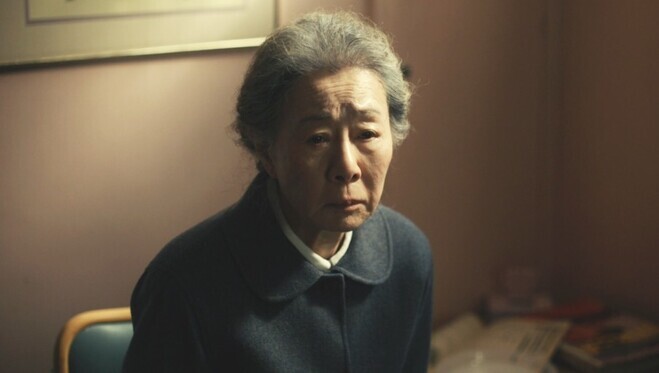
This family epic that spans four generations in Korea, Japan and the US is based on a New York Times bestseller novel, also called Pachinko. It tells the story of the Korean diaspora, weaving together the hardscrabble life of Sunja (Kim Min-ha), who unexpectedly leaves Busan for Japan in the 1930s, during the colonial period, with the struggle of Solomon (Jin Ha) to succeed in Japan in the 1980s.
Historical research was essential for the producers, who drew inspiration from “The Godfather” (the classic film dealing with the history of Italian immigrants) as they sought to recreate the lives of Zainichi from the Japanese colonial period to the 1980s.
Pachinko creator and showrunner Soo Hugh noted in an online briefing on April 18 that the show’s screenwriting team included a range of nationalities and 40 historians as consultants. Hugh added that the show had sought to represent the period as accurately as possible with the help of experts in diverse areas, including culinary researchers, experts on the Great Kanto Earthquake, and attorneys specializing in Japanese real estate law from the 1980s.
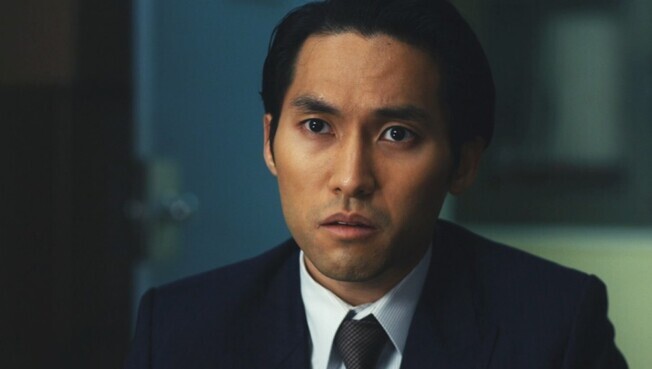
Although the series (which cost 100 billion won to make) features South Korean actors and was produced and directed by Korean Americans, it’s undeniably an American series, produced by the American company Apple. The extensive involvement of Korean Americans — Kogonada directed episodes 1-3 and 7, Justin Chon directed episodes 4-6 and 8, Theresa Kang-Lowe is an executive producer, Soo Hugh is the showrunner, and Jin Ha is in the cast — is highly unusual for an American show backed by a huge American investment.
“When we first talked about Pachinko four years ago, there were really no films or shows in which the entire cast was Asian. Crazy Rich Asians was a commercial success, but that hadn’t come out yet, and Parasite’s big win at the Oscars was still a few years away,” Kang-Lowe said.
While the series switches between Korean, Japanese and English and alternates between the past and present, the narrative of people who overcome trials and hardships has a power that transcends national borders.
Following its release, Pachinko received rave reviews. The Canada Globe and Mail said it’s “easily not just one of this year’s great dramas; it stands out as among the best of the past few years.”
Forbes called the series a “rare gem,” while Rolling Stone said it “combines the denseness of prose fiction with the specific advantages of television.”
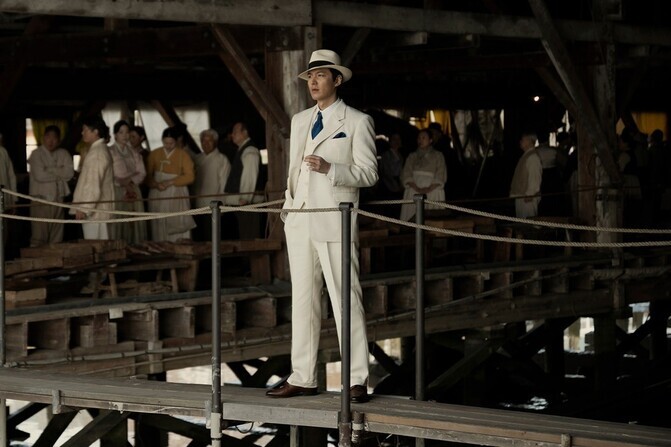
A writer for Vulture said that while nothing “lasts forever [. . .] I do wish watching Pachinko could last forever.”
“Pachinko is a harrowing portrait of suffering balanced against an elating tale of familial resilience and female strength,” the Hollywood Reporter opined.
Review website Rotten Tomatoes gave Pachinko a rating of 98% fresh, based on reviews by 56 critics, along with an audience score of 95%.
Only in Japan — the country whose shameful past gets aired in the series — has Pachinko received little attention. Apple did release Pachinko in Japan, but it hasn’t promoted it there.
These positive reviews are driving interest in the next season of Pachinko, which wrapped up its first season with Episode 8 on April 29.
“As you’re probably aware, we’d like to continue the series through Season 4. But we’ll have to wait and see about the timing,” Kang-Lowe said.
This is the beginning of global interest in and sympathy for the painful history of the Korean diaspora.
By Oh Seung-hun, staff reporter
Please direct questions or comments to [english@hani.co.kr]

Editorial・opinion
![[Column] Has Korea, too, crossed the Rubicon on China? [Column] Has Korea, too, crossed the Rubicon on China?](https://flexible.img.hani.co.kr/flexible/normal/500/300/imgdb/original/2024/0419/9317135153409185.jpg) [Column] Has Korea, too, crossed the Rubicon on China?
[Column] Has Korea, too, crossed the Rubicon on China?![[Correspondent’s column] In Japan’s alliance with US, echoes of its past alliances with UK [Correspondent’s column] In Japan’s alliance with US, echoes of its past alliances with UK](https://flexible.img.hani.co.kr/flexible/normal/500/300/imgdb/original/2024/0419/2317135166563519.jpg) [Correspondent’s column] In Japan’s alliance with US, echoes of its past alliances with UK
[Correspondent’s column] In Japan’s alliance with US, echoes of its past alliances with UK- [Editorial] Does Yoon think the Korean public is wrong?
- [Editorial] As it bolsters its alliance with US, Japan must be accountable for past
- [Guest essay] Amending the Constitution is Yoon’s key to leaving office in public’s good graces
- [Editorial] 10 years on, lessons of Sewol tragedy must never be forgotten
- [Column] A death blow to Korea’s prosecutor politics
- [Correspondent’s column] The US and the end of Japanese pacifism
- [Guest essay] How Korea turned its trainee doctors into monsters
- [Guest essay] As someone who helped forge Seoul-Moscow ties, their status today troubles me
Most viewed articles
- 1[Column] The clock is ticking for Korea’s first lady
- 2Samsung barricades office as unionized workers strike for better conditions
- 3After 2 months of delayed, denied medical care, Koreans worry worst may be yet to come
- 4[Correspondent’s column] In Japan’s alliance with US, echoes of its past alliances with UK
- 5[Column] Has Korea, too, crossed the Rubicon on China?
- 6Hong Se-hwa, voice for tolerance whose memoir of exile touched a chord, dies at 76
- 7[Photo] Smile ambassador, you’re on camera
- 8All eyes on Xiaomi after it pulls off EV that Apple couldn’t
- 9[Guest essay] How Korea turned its trainee doctors into monsters
- 10US overtakes China as Korea’s top export market, prompting trade sanction jitters